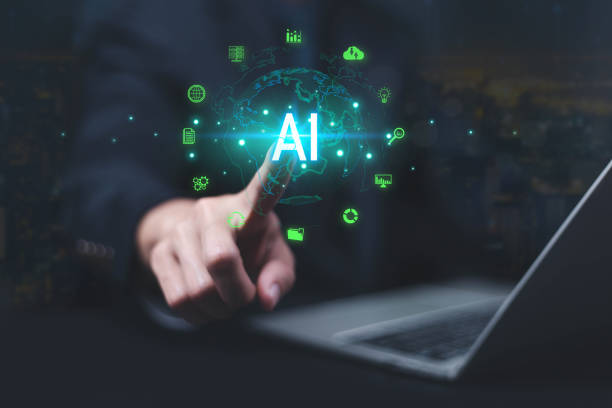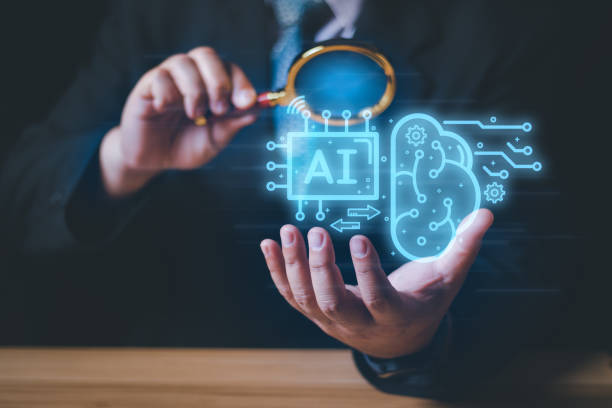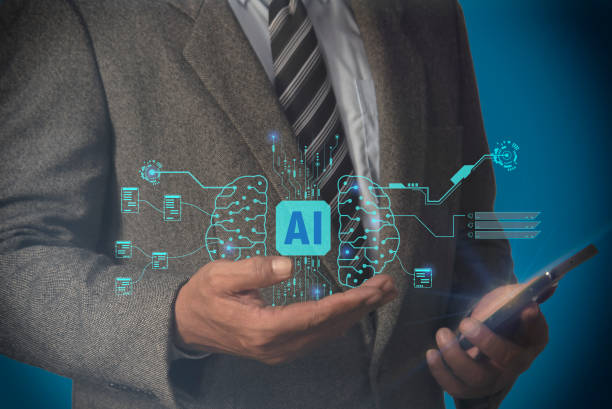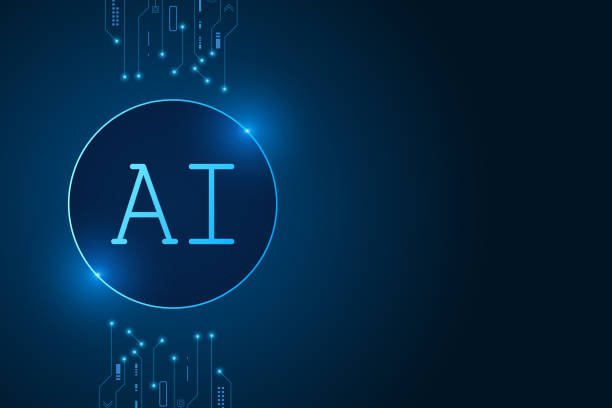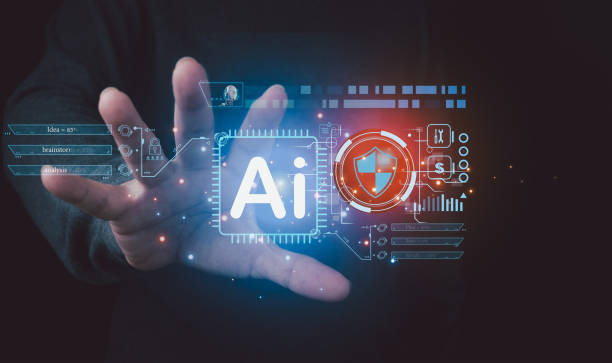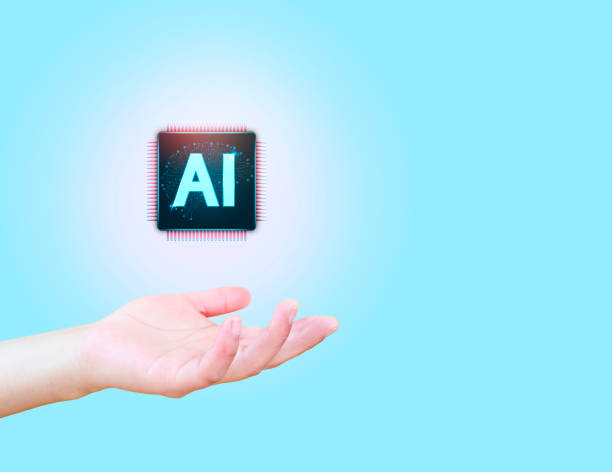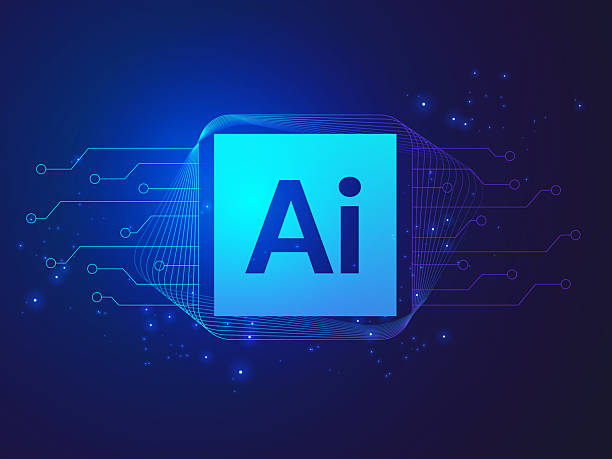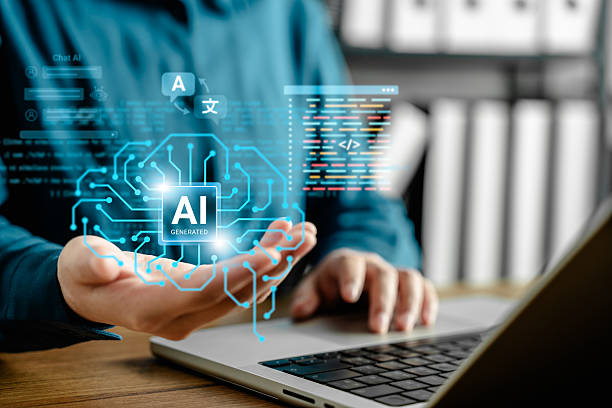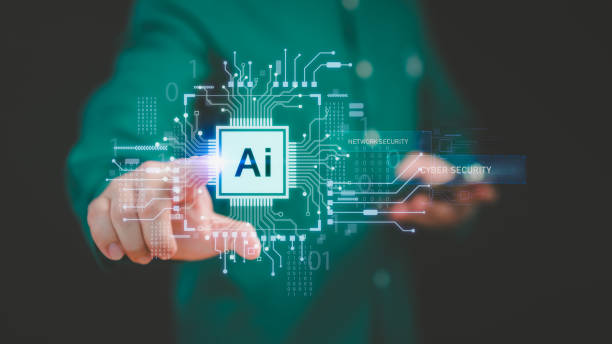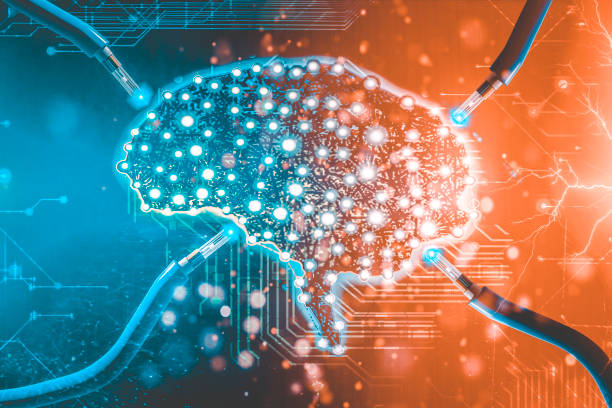What is Artificial Intelligence and what impact does it have on the job market?
In short, Artificial Intelligence (AI) is a branch of computer science that deals with building intelligent machines capable of performing tasks that typically require human intelligence.
These tasks include learning, problem-solving, natural language understanding, pattern recognition, and decision-making.
AI and its subfields such as Machine Learning and Neural Networks are rapidly advancing and have a profound impact on various industries and the job market.
The impact of artificial intelligence on the job market is twofold.
On the one hand, the automation and intelligentization of processes leads to the elimination of some repetitive and routine jobs.
This has raised concerns about increasing #unemployment and the need to retrain the workforce.
On the other hand, artificial intelligence creates new job opportunities.
The development, implementation, and maintenance of artificial intelligence systems require skilled professionals in various fields, including computer science, software engineering, data science, and statistics.
In addition, artificial intelligence can increase productivity and lead to economic growth, which itself can create more job opportunities in other sectors.
Therefore, understanding the #future of AI employment and preparing for its changes is essential for individuals and organizations.
Are you disappointed with the low conversion rate of your online store?
Rasaweb is your definitive solution with professional online store design!
✅ Increase your sales and revenue
✅ Unparalleled user experience for your customers
⚡ Get a free consultation now!
Jobs at risk and new jobs in the age of artificial intelligence
With the expansion of artificial intelligence, some jobs are more at risk of automation than others.
These jobs typically involve repetitive, routine, and predictable tasks that can easily be replaced by algorithms and machines.
For example, clerical jobs, telephone operators, some assembly line workers, and vehicle drivers are among the jobs that could potentially be eliminated with the advancement of artificial intelligence and automation.
To better understand this, it can be very helpful to pay attention to the analyses provided by reputable sources such as the World Economic Forum.
In contrast, artificial intelligence also creates new job opportunities.
Jobs related to the development, implementation, maintenance, and use of artificial intelligence systems are growing.
For example, machine learning specialists, data scientists, artificial intelligence engineers, robotics developers, and business intelligence analysts are among the jobs that are in increasing demand.
In addition, artificial intelligence can create new jobs in areas such as healthcare, education, agriculture, and transportation.
For example, developers of artificial intelligence-based diagnostic software, virtual trainers, and smart farmers are among the emerging jobs that will play an important role in the #future of AI employment.
Therefore, individuals should keep their skills up to date and prepare for new jobs in the age of artificial intelligence.
Skills Needed to Succeed in the Future of AI Employment
To succeed in the #future of AI employment, it is essential to acquire specific skills.
These skills include technical skills and soft skills.
Technical skills include knowledge of programming (especially languages like Python and R), machine learning, data science, neural networks, natural language processing (NLP), and robotics.
Also, familiarity with artificial intelligence tools and platforms such as TensorFlow, PyTorch, and scikit-learn is essential for professionals in this field.
In addition to technical skills, soft skills are also very important for success in the #future of AI employment.
These skills include critical thinking, problem-solving, creativity, communication, and teamwork.
The ability to understand complex issues, provide innovative solutions, and collaborate with others to implement artificial intelligence projects are among the key skills.
Also, the ability to learn continuously and adapt to rapid changes in technology is essential for professionals in this field.
Investing in education and learning new skills plays a fundamental role in ensuring the job security of individuals in the #future of AI employment.
| Soft Skills | Descriptions |
|---|---|
| Critical thinking | Ability to analyze information and evaluate arguments |
| Problem solving | Ability to identify and solve complex problems |
| Creativity | Ability to provide new and innovative ideas |
| Communication | Ability to communicate effectively with others |
| Teamwork | Ability to work with others to achieve common goals |
Industries most affected by Artificial Intelligence
Artificial intelligence is currently having a significant impact on various industries, and this impact is expected to increase in the #future of AI employment.
Some of the industries that are most affected by artificial intelligence include: healthcare, finance, retail, manufacturing, transportation, and education.
In healthcare, artificial intelligence is used to diagnose diseases, develop drugs, and provide more personalized care.
In finance, artificial intelligence is used to detect fraud, manage risk, and provide financial advisory services.
In retail, artificial intelligence is used to predict demand, improve customer experience, and optimize the supply chain.
Click here to preview your posts with PRO themes ››
In manufacturing, artificial intelligence is used to automate processes, improve product quality, and reduce costs.
In transportation, artificial intelligence is used to develop self-driving cars, optimize routes, and manage traffic.
In education, artificial intelligence is used to provide more personalized education, assess student performance, and create more engaging educational content.
These industries will not only witness fundamental changes in the way things are done, but will also create new job opportunities that require skilled professionals in the field of artificial intelligence.
Recognizing these opportunities and preparing to take advantage of them is the key to success in the #future of AI employment.
Does your current website create the trust that potential customers should have in your business? If the answer is no, it’s time to have a professional and impactful corporate website with Rasaweb.
✅ Completely custom design tailored to your brand identity
✅ Increase lead attraction and the credibility of your business in the eyes of customers⚡ Contact us for a free consultation!
The role of governments and educational institutions in preparing the workforce for the future of artificial intelligence
Governments and educational institutions play an important role in preparing the workforce for the #future of AI employment.
Governments can help develop this technology by investing in artificial intelligence research and development, supporting start-ups in this field, and providing tax incentives for companies that use artificial intelligence.
Also, governments can protect workers’ rights against automation and help them learn new skills by developing appropriate policies.
Educational institutions can also provide students and workers with the skills needed for the #future of AI employment by offering artificial intelligence-related courses.
These courses should include theoretical and practical training in areas such as machine learning, data science, neural networks, and robotics.
In addition, educational institutions can provide internship and work experience opportunities for students by collaborating with industry so that they can gain practical experience in the field of artificial intelligence.
Investing in education and developing artificial intelligence-related skills is a necessity to ensure the competitiveness of countries in the #future of AI employment.
Ethical and social challenges arising from artificial intelligence in the workplace
The expansion of artificial intelligence in the workplace creates numerous ethical and social challenges.
One of these challenges is the issue of #discrimination.
Artificial intelligence algorithms can be trained based on historical data and, as a result, reproduce the biases present in this data.
For example, a hiring algorithm may unintentionally overlook women or people belonging to minority groups.
To prevent this problem, artificial intelligence algorithms need to be trained with diverse and unbiased data and reviewed regularly.
Another ethical challenge is the issue of #privacy.
Artificial intelligence systems can collect and analyze a lot of data about employees, including personal information, job performance, and even their emotions.
To protect the privacy of employees, it is necessary to develop laws and regulations on how data is collected, used, and stored.
In addition, employees should be aware of their rights and be able to defend their privacy if necessary.
Understanding these challenges and striving to find appropriate solutions is essential to creating a fair and ethical workplace in the age of artificial intelligence.
This helps maintain public trust in this technology and its responsible use.
Possible scenarios for the future of AI employment
It is difficult to accurately predict the #future of AI employment, but possible scenarios can be considered.
One scenario is that artificial intelligence will gradually replace many repetitive and routine jobs, but at the same time, it will create new job opportunities in areas such as the development and maintenance of artificial intelligence systems.
In this scenario, the workforce needs to keep its skills up to date and prepare for new jobs.
Click here to preview your posts with PRO themes ››
Another scenario is that artificial intelligence will not only replace routine jobs, but will also affect more complex jobs.
In this scenario, it is necessary for governments and educational institutions to provide comprehensive programs to support unemployed workers and train them with new skills.
Also, there may be a need to review welfare and social security systems.
In any case, preparing for the changes caused by artificial intelligence and investing in education is essential for individuals, organizations, and governments.
| Industry | The impact of artificial intelligence | New job opportunities |
|---|---|---|
| Healthcare | More accurate diagnosis of diseases, more personalized treatments | Diagnostic software developers, artificial intelligence specialists in healthcare |
| Finance | Fraud detection, risk management, smart financial advice | Business intelligence analysts, machine learning specialists in finance |
| Manufacturing | Automation of processes, improved product quality | Robotics engineers, industrial automation specialists |
| Transportation | Self-driving cars, intelligent traffic management | Self-driving car developers, navigation system specialists |
Solutions to adapt to the changes caused by artificial intelligence
To adapt to the changes caused by artificial intelligence, individuals and organizations must consider solutions.
Individuals should keep their skills up to date and learn new skills that are needed in the #future of AI employment.
These skills include technical skills (such as programming and data science) and soft skills (such as critical thinking and problem-solving).
Also, individuals should be flexible and ready to change their job or industry.
Organizations should also invest in training their employees and prepare them for new jobs.
Also, organizations should promote a culture of continuous learning and give their employees opportunities to learn and grow.
In addition, organizations should use artificial intelligence responsibly and protect workers’ rights against automation.
In general, adapting to the changes caused by artificial intelligence requires an active and proactive approach that includes continuous learning, flexibility, and responsibility.
Ultimately, embracing change and being prepared to learn new skills will be the key to success in the #future of AI employment.
Are you disappointed with the low conversion rate of your online store? Rasaweb will turn your online store into a powerful tool to attract and convert customers!
✅ Dramatic increase in the conversion rate of visitors to buyers
✅ Unique user experience to increase customer satisfaction and loyalty⚡ Get free advice from Rasaweb!
Success stories of individuals and companies in using artificial intelligence
Reviewing the success stories of individuals and companies in using artificial intelligence can be inspiring and informative.
For example, many companies have used artificial intelligence to improve customer experience, increase sales, and reduce costs.
One of these companies is Amazon, which uses artificial intelligence to suggest products to customers, optimize the supply chain, and manage warehouses.
Also, many hospitals have used artificial intelligence to diagnose diseases, provide more personalized treatments, and reduce errors.
In addition to companies, individuals can also achieve great success by using artificial intelligence.
For example, many data scientists have used artificial intelligence to solve complex problems in various fields, including healthcare, environment, and economics.
Also, many entrepreneurs have used artificial intelligence to create new and innovative businesses.
These stories show that artificial intelligence can be a powerful tool for solving problems, creating opportunities, and improving the lives of individuals and communities.
Final recommendations for preparing for the future of AI employment
To prepare for the #future of AI employment, it is recommended that individuals and organizations take the following actions: Keep your skills up to date and learn new skills that are needed in the #future of AI employment.
Invest in training your employees and prepare them for new jobs.
Promote a culture of continuous learning and give your employees opportunities to learn and grow.
Use artificial intelligence responsibly and protect workers’ rights against automation.
Be flexible and ready to change your job or industry.
Adapt to the changes caused by artificial intelligence and take advantage of the new opportunities it creates.
Remember that the #future of AI employment is full of challenges and opportunities, and with proper preparation, you can take advantage of these opportunities and achieve success.
Ultimately, striving to develop artificial intelligence-related skills, keeping up with the latest advances in this field, and embracing change will be the key to success in the #future of AI employment.
The future of AI employment promises many opportunities, but preparation and adaptation are essential to take advantage of these opportunities.
Click here to preview your posts with PRO themes ››
Frequently Asked Questions
| Question | Answer |
|---|---|
| What impact will artificial intelligence have on the future job market? | Artificial intelligence automates repetitive jobs, but at the same time it will create new and more complex jobs in areas such as the development, maintenance, and training of artificial intelligence systems. |
| Which jobs are most at risk of being replaced by artificial intelligence? | Jobs that involve repetitive, rule-based tasks with low requirements for creativity or emotional intelligence, such as some manufacturing jobs, data entry, and simple customer service, are most at risk. |
| What skills are essential for success in a future career with the presence of artificial intelligence? | Skills such as critical thinking, complex problem solving, creativity, emotional intelligence, data literacy, ability to work with artificial intelligence, and lifelong learning are of great importance. |
| Will artificial intelligence cause widespread unemployment? | Some jobs will be lost, but history has shown that new technologies, instead of widespread unemployment, reshape the job market and create new jobs. The need for adaptation and retraining is crucial. |
| What new job opportunities are emerging with the emergence of artificial intelligence? | Jobs such as machine learning engineer, data scientist, artificial intelligence ethicist, human-AI interaction designer, and digital transformation consultant are among the new opportunities. |
| What is the role of education in preparing for a future career with artificial intelligence? | Education should focus on developing soft skills, computational thinking, digital literacy, and the ability to learn continuously so that people are prepared for future changes. |
| How can I prepare myself for the labor market changes caused by artificial intelligence? | You can prepare yourself by learning new skills related to artificial intelligence and data, strengthening soft skills, developing critical thinking and creativity, and getting into the habit of lifelong learning. |
| Will artificial intelligence ethics become an important field of work? | Yes, given the growing concerns about biases, privacy, and automated decision-making of artificial intelligence, the role of artificial intelligence ethics experts to ensure its responsible development will be crucial. |
| How important is human-artificial intelligence collaboration in the future of work? | Human-artificial intelligence collaboration, rather than competition, will shape the future of the labor market. Artificial intelligence can be a tool to increase productivity and human focus on more complex and creative tasks. |
| Which industries will be most affected by artificial intelligence? | Almost all industries will be affected, but areas such as healthcare, finance, transportation, manufacturing, education, and customer service are among the pioneers of adoption and transformation by artificial intelligence. |
And other services of Rasa Web Advertising Agency in the field of advertising
Smart Linking: A professional solution for analyzing customer behavior with a focus on using real data.
Intelligent Custom Software: A professional solution for analyzing customer behavior with a focus on SEO-oriented content strategy.
Intelligent Brand Identity: A professional solution for digital branding with a focus on attractive user interface design.
Intelligent UI/UX: A combination of creativity and technology to increase click-through rate by accurately targeting the audience.
Intelligent Website Development: An effective tool for user interaction through intelligent data analysis.
And more than hundreds of other services in the field of internet advertising, advertising consulting and organizational solutions
Internet advertising | Advertising strategy | Advertorial
Resources
The Future of Artificial Intelligence in Iran
,Artificial Intelligence and the Future of Work and Businesses
,The Impact of Artificial Intelligence on the Future of Jobs and Work in Iran
,How will artificial intelligence change employment?
? Are you ready to boost your business in the digital world? Rasa Web Digital Marketing Agency offers innovative solutions in online store design, SEO, social media management and branding, and helps you on the path to growth. Contact our experts today for a free consultation and to learn more about our services.
📍 Tehran, Mirdamad Street, next to the Central Bank, Kazerun Jonobi Alley, Ramin Alley No. 6


